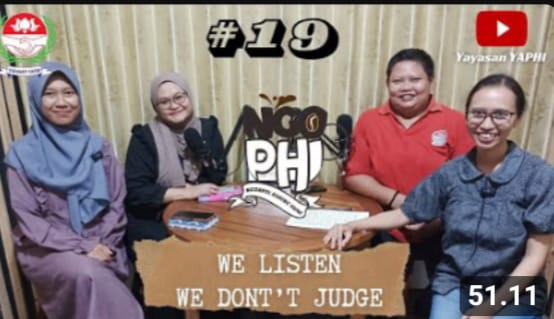Internasional Women's Day (IWD) was an annual event on 8 March that marked women’s and children’s courage worldwide to rise and to demand a world of equality for everyone. The moment was highly critical for global community to celebrate women’s achievement in all aspects. IWD was also a momentum to demand real acts to accelerate gender equality.
The International Women's Day page suggested that this year (2025) constituted an “Accelerated Action”. The theme emphasized the importance of quick, concrete, and collaborative actions to address challenges in gender equality worldwide.
A report fro the World Economic Forum showed that in today’s progress, the world would need time until 2158 – more than five generations – to achieve full gender equality. This indicated that without significant measures, gender gap would continue or even get worse. Gender equality was not only an issue for women, but an issue that affected socio-economic, and cultural progress worldwide.
Gender inequality was evident in many aspects of life – women representation in politics, pay gap between men and women, and access to education and health services. For this reason, the theme “Accelerate Action” was a joint call for individuals, organisations, and governments to make meaningful channges.
Quick action should not have been a problem in an era of digital world. There were a number of media that could be used as tools to achieve equality, and youth creativity. This was the topic of discussion during the podcast broadcasting of Ngobrol Bareng Yaphi (NGOPHI) 18/3 available on Yayasan Yaphi YouTube.
NGO-PHI 19th Edition featured Dorkas Febria and Christina Vera as hosts and Luxy Nabela Farez, founder of Pusat Studi Perempuan Solo (Pukaps) and Ika Hana Pertiwi, volunteer with Schizophrenia-Aware Community Indonesia (KPSI) for Solo Raya. They not only talked about what equality was really meant to be but also inclusiveness as extrapolated by Luxy who explained how Pukaps incorporated it in discussions that involved people with hearing disability and sign language facilitator(s). Budget was the only challenge as the group was a community that did not have any special disability project(s).
Luxy added that at this year’s International Women’s Day, her community conducted an internal reflection of each woman in the organization – which was an initial step before advocating it to other people towards equality. Hana, on the other hand, sadi that this year’s International Women’s Day was the first she celebrated with her community, and she suggested that the significance of International Women’ Day that it was a day of re-birth or second birth for women. It so happened that Hana and KPSI attended gender and rights equality training and this was highly relevant during the International Women’s Day discussion.
Ngo-phinot only talked about women’s movement for equality through networking or collaboration, but also to talk about current phenomena - "We Listen and We Don't Judge". The latter was a term we first used in our social media - Tiktok. Then we used it in instagram, and from there it became a movement about how to listen without judging. "It was as easy as listening without comparing stories being told by other people or stories experienced," said Luxy which Hana affirmed. Sometimes, they did not even need our answers. They only needed response in the form of hand gesture: shoulder-tapping, an embrace, or by using certain tone(s) during a phone conversation, such as: "ya, hemm" that showed you were present and listening.
We Listen, We Don't Judge was also a measure to reduce judgementental opinions in cases of sexual violence against women and children that put the blame(s) on women’s or children’s clothing or any other reasoning that put the final blame on women.
This time Ngo-phi focus on "We Listen and We Don't Judge" was an attempt to eliminate stigma. Hana said that since 2010, KPSI had a social media platform - Facebook – as a means for education for people with mental disability. With the passing of time, it was evident that the content creator(s) created stigma by developing contents that forced people with mental disability into a tight corner – i.e. by making them objects of charitable actions, or by creating funny contents. Hana and the community often remind them about the contents, through social media or through whatsApp, and about ways to minimize stigma by using terms such as psychosocial disability, or people with psychosocial disability, despite what the Health Law used of the terms such as People with Mental Disturbance and People with Mental Problems.
(Ast)












